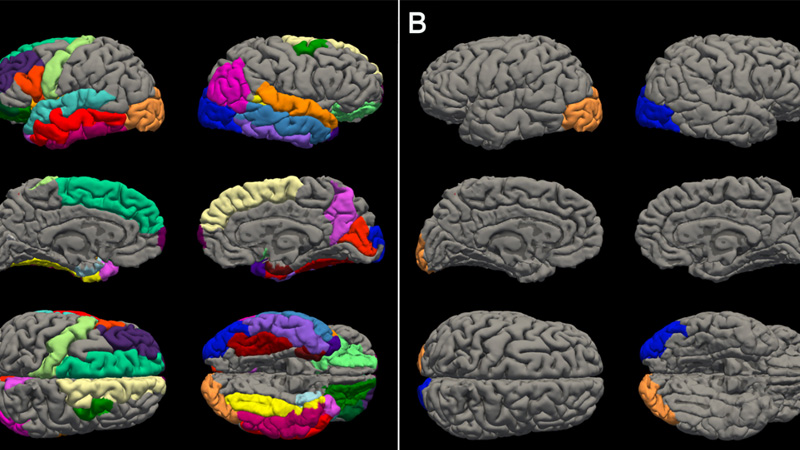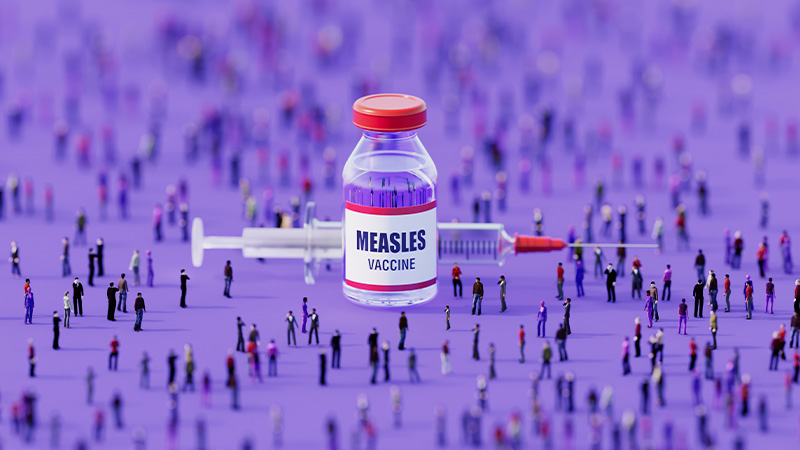Image Credit: PNAS screenshot
A study published Monday documented how the Covid lockdowns triggered an accelerated rate of brain aging in teens, particularly in female teens.
“We report that the lockdown measures enacted during the COVID-19 pandemic resulted in unusually accelerated brain maturation in adolescents and that this accelerated maturation was much more pronounced in females than in males,” the study said in the ‘Significance’ section.
Perhaps not surprisingly, lockdowns, which inhibited social interaction, had a greater effect on females, as anyone who’s been around humans knows females are the more social gender, making them more vulnerable to social upheaval.
“These findings indicate greater vulnerability of the female brain, as compared to the male brain, to the lifestyle changes resulting from the pandemic lockdowns,” the study said in the ‘Significance’ section.
The research showed that the lockdowns served as an interesting, albeit malicious, neuropsychological experiment on the developing human brain.
“They additionally provide a potential neurophysiological mechanism for alterations in adolescent mental health and other behaviors associated with the lockdowns,” the study said in the ‘Significance’ section.
While ‘maturity’ is widely regarded as a positive aspect of the aging process, it should be noted that the ‘maturation’ term used in the scientific research is not a positive attribute.
“Since accelerated brain maturation has been associated with increased risk for the development of neuropsychiatric and behavioral disorders, these findings highlight the importance of providing ongoing monitoring and support to individuals who were adolescents during the COVID-19 pandemic,” the study said in the ‘Significance’ section.
The researchers explained the detrimental effect further in the following section of the paper.
“Social isolation due to lockdowns that were imposed because of the COVID-19 pandemic had a detrimental impact on adolescent mental health, with the mental health of females more affected than males,” the study said in the ‘Abstract’ section.
The research was conducted via analysis of MRI brain scans of adolescents, ages 9, 11, 13, 15, and 17 years of age from before (from 2018) and after (from 2021) the Covid lockdowns. The scans showed ‘accelerated cortical thinning’ in the post-Covid lockdown brains – a trait of neurological aging. Note that the ‘after’ data was compiled from 2021, making the neurological side effects from the Covid vaccines less likely to skew the results than in later years.
“The pre-COVID data were used to create a normative model of cortical thickness change with age during typical adolescent development. Cortical thickness values in the post-COVID data were compared to this normative model. The analysis revealed accelerated cortical thinning in the post-COVID brain, which was more widespread throughout the brain and greater in magnitude in females than in males,” the study said in the ‘Abstract’ section.
Also to reduce the risk of other variables, the researchers used the same population and brain scans from the same MRI machine.
“There are multiple strengths of the design of the current study. All study participants were selected from adolescents living in the same community, using identical exclusion criteria; all study participants experienced similar pandemic lockdown timelines; and all brain data were acquired on the same MRI instrument. This design strategy mitigated concerns that arise when normative models are developed on populations with different demographic characteristics and using different imaging systems,” the study said in the ‘Current Study’ section.
The metrics of the cortical thinning was said to be equivalent to 4.2 years in females and 1.4 years in males, meaning the brain of a 15-year-old girl artificially aged to over 19-years-old and the brain of a 15-year-old boy was artificially aged to about 16.5-years-old, albeit without the real-life experience that would naturally coincide with the neurological development.
The researchers detailed the deleterious effects that this artificial aging can cause.
“Accelerated brain maturation as a result of chronic stress or adversity during development has been well documented. These findings suggest that the lifestyle disruptions associated with the COVID-19 pandemic lockdowns caused changes in brain biology and had a more severe impact on the female than the male brain,” the study said in the ‘Abstract’ section.
For those that haven’t pondered this pivotal period of life, the researchers quantified the changes from childhood to adulthood in terms of neuropsychological development.
“Adolescence is a period of dramatic change in emotional, behavioral, and social development. During this period, individuals become more independent of their parents and spend more time with peers. These peer interactions provide necessary opportunities for learning how to navigate social relationships. This time period is also one in which a sense of self-identity, self-confidence, and self-control are developed, but it is also a period of emergence of many neuropsychiatric disorders, including anxiety, depression, and behavioral disorders,” the study said in the ‘Introduction’ section. “Adolescence is also a period of significant structural remodeling of the brain. During childhood and adolescence, the brain is neurally plastic and undergoes many structural changes, which are highly dependent on environmental factors. Cortical gray matter volume and cortical thickness peak during childhood, steadily decrease throughout adolescence, and continue to decrease across the rest of the lifespan. Myelination and synaptic pruning are active processes in many regions of the brain during adolescent development. The decreases in cortical thickness observed during adolescence are likely primarily caused by synaptic pruning, but myelination of axons within the cortical layer may also play a role.”
This is not the first study to analyze brain metric outcomes from the Covid lockdowns however. A study from 2023 showed ‘worse mental health and accelerated brain development in adolescents’ as well.
“The two groups differed significantly in both their mental health and brain development. Compared to the pre-pandemic group, adolescents assessed after the pandemic shutdowns reported more symptoms of anxiety and depression and greater internalizing problems,” the 2023 study said.





